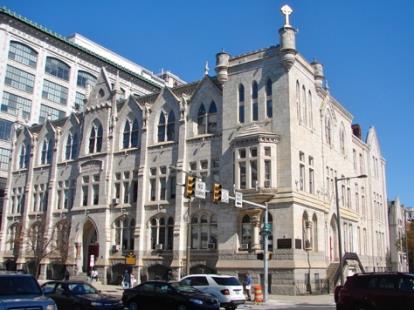
 Urban Catholic schools “are facing an unprecedented crisis as a result of the COVID-19 pandemic,” according to a report by National Public Radio (July 30, 2020). Tom Gjelton reports that at least 100 urban Catholic schools are estimated to close in the fall because of declining tuition revenue, “and school administrators say the number could double in the next two months.” The economic downturn resulting from the virus has led to widespread unemployment, which in turn has depleted the funds of many parents for paying Catholic school tuition fees. As families pull their children out of Catholic schools, these institutions will likely have to shut their doors. “If the school had a lot of low-income families in it, [it] got hit really hard,” says Tom Carroll, superintendent of Catholic schools in the archdiocese of Boston, where nine are due to close. “For those schools that were already on the edge, it just put them over.”
Urban Catholic schools “are facing an unprecedented crisis as a result of the COVID-19 pandemic,” according to a report by National Public Radio (July 30, 2020). Tom Gjelton reports that at least 100 urban Catholic schools are estimated to close in the fall because of declining tuition revenue, “and school administrators say the number could double in the next two months.” The economic downturn resulting from the virus has led to widespread unemployment, which in turn has depleted the funds of many parents for paying Catholic school tuition fees. As families pull their children out of Catholic schools, these institutions will likely have to shut their doors. “If the school had a lot of low-income families in it, [it] got hit really hard,” says Tom Carroll, superintendent of Catholic schools in the archdiocese of Boston, where nine are due to close. “For those schools that were already on the edge, it just put them over.”
About 80 percent of the budget of Catholic schools depend on tuition revenue, with the remaining 20 percent coming from fundraising and donations, according to an official from the National Conference of Catholic Bishops. All of these sources were significantly depleted during the pandemic, not to mention subsidies from parishes of affiliated schools, where weekly collections suffered from church closings since March. Many of these schools have received funding under the federal government’s Paycheck Protection Program started during the pandemic, but that money is running out soon. Although urban Catholic schools have faced declining enrollments for some time as a result of many middle-class Catholic families leaving cities for the suburbs, they have become educational lifelines for many low-income families. Many of these students are not Catholic but they have profited from the strong emphases on moral values and discipline these schools offered. One of the urban areas most affected by Catholic school closings is the archdiocese of New York, where at least 20 will be shutting down, while nine ae slated to close in Boston and 24 more are on a “watch list.”